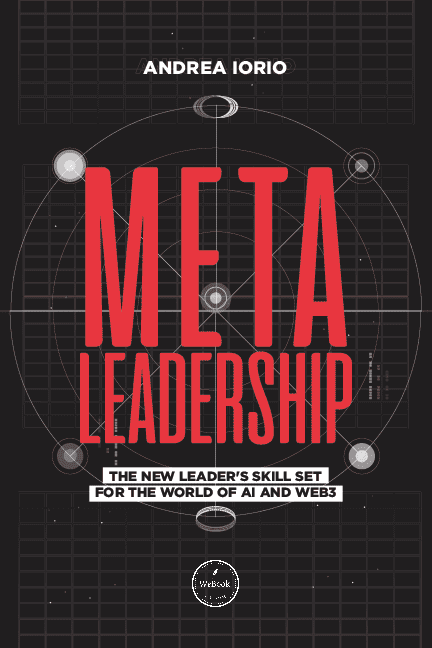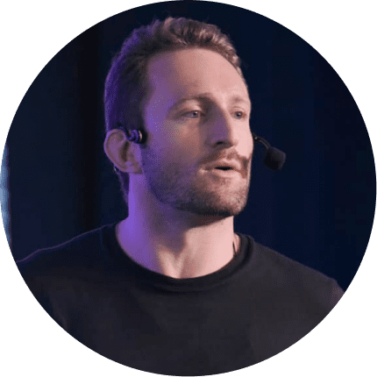Imagine the following situation: you are the HR director of an engineering multinational, and you are having difficulty in recruiting the best young talent, as most engineers go to fast-growing start-ups.
You find yourself having to elaborate a communication strategy, together with the internal communication team, to place yourself in the market as a company that is very attractive to work for young people of Generation Z, that is, those born from 1995 onwards. After some meetings and brainstorming, they end up having to choose between 3 main lines of communication. Which of the following 3 would you choose?
- Focus on demonstrating that your company offers 20% above the market average. After all, who can refuse good paycheck?
- Focus on listing all the benefits that the company offers, including a common space with video games and pool table in the new office that will reopen after the pandemic. And even the unlimited Gympass!
- Focus on making the company's values and purpose as clear as possible, in particular what are the motivations that drive the organization to transform itself digitally and technologically? You try to clarify why these talents are there.
Which path do you choose?
I believe option 3 is the right one to go, because only the third format demonstrates that you understood that Generation Z, also called the Generation of truth, is more driven by purpose than anything else. For this reason, although important, the other two communication axes, that is, wages and benefits, cannot be the focus here. The truth is that all of this, and more, will be discussed throughout this article, based on a speech made by Whitney Wolfe, who is the co-founder and CEO of Bumble, one of the largest dating apps in the world, and is the newest billionaire in the world. In the next sentence she tells us how there is no more room for purposeless business.
"Our DNA, our mission, our values, our pole star, is how we end misogyny, i.e., hatred of women, as a company, as a team, as a brand, as a movement, our user base can participate. How can we achieve this? These are our values: kindness, accountability, which is very important as there is a huge lack of accountability with the way people behave digitally. In 2015, a user reported receiving abusive messages on the app , and we thought, "Well, let's use this and let's write him a letter. Let's write an open letter, not to Connor, not just to him, but to every Connor out there. Anyone who wants to behave like Connor, or anyone who believes it's legal or expected to do so. And you also have to think about this moment in history: digital connections were rapidly heading towards abuse, and Bumble has been this incredible catalyst to reverse engineer that."
In 2016, screenshots of a conversation between two Bumble users, Ashley and Connor, went viral, where after a very normal question that Ashley asked to open the conversation, that is "What do you do for a living?", Connor began a sexist monologue where he said he was tired of women wanting to know about his work out of interest. With a series of misogynistic and sexist phrases, he felt like a big shot and ended the conversation with Ashley, probably starting to upset someone else. What he didn't know was not only that the conversation with Ashley would go viral, but that on top of that, Bumble would write an open letter to him, but at the same time directed to all the Connors they have, first blocking him from the app, but also giving a lesson on values and principles of behavior. For those who remember the opening sentence of the previous episode of my podcast on Whitney, you should remember that she says that kindness is contagious. So I want you to read an excerpt from the letter sent to Connor:
"Dear Connor,
We've heard that you've lost your temper with one of our users, Ashley. She chatted a little; you felt personally attacked. She mentioned her work day and asked about yours; you assumed she was meddling in your financial situation.
Given that we're all working women, let's hazard a guess as to Ashley's intentions here. Sit down, Connor, because this concept might blow your mind: women these days work. It happened gradually, we know, but most women of our generation have jobs.
With that in mind—and knowing that Ashley simply mentioned work in the conversation—we can infer that she wasn't expecting to find out if her wallet was big enough for her to move into your house and start cooking dinner for you. Instead, Ashley was (wait, Connor, because this is where things really get interesting), seeing herself as her equal. It might sound crazy, but people connect over the basic routines of life. You know, things like the weather, working out, getting a drink, eating, and working.
While you might see this as a "neoliberal, a Beyoncé, a feminist cancer" and rant about the personal wounds you've suffered from "shoe cleats," let's keep working. Let's expand our reach and make sure women everywhere get the message that they have as much power in their personal lives as they do in the workplace. Let's continue to build a world that makes mean, misogynistic boys like you out of date.
Consider yourself banned from Bumble."
No further. Absolutely amazing.
I remember that at the time, in 2016, I was working on Tinder and still, I had to applaud this initiative.
And this is where the interesting part comes in: Whitney made purpose and values the main pillars of her business.
But look how funny: until recently, all of this was seen as an enemy of business, or as something mandatory to comply with but that represented an expense. Sustainability, equality, governance….all spending lines that were only approved by PR and marketing campaigns.
And this thought still exists to this day!
But we are able to see a wave of change: at the end of 2020 I had the honor of being the master of ceremonies at the Bradesco Private year-end convention, the Bradesco Private Family Forum, aimed at the main heirs of Bradesco client families. And precisely one of the main topics we dealt with was ESG. This is one of the most used terms today, to the point that companies are having directors in this area, which incorporates Sustainability, Environment and Governance. One of the examples that comes to mind is the excellent example of Gustavo Vitti, who now holds the position of Chief People and Sustainability Officer, and led an incredible and funny campaign (featuring Thais, a former participant of Big Brother Brazil), IFood Regenera, which aims to zero environmental impact of delivery by 2025, either by zeroing plastic pollution in delivery or neutralizing CO2 emissions. The campaign was launched on Environment Day and iFood invited society and the community - restaurants and platform users - to help reduce the consumption of disposable items in orders. Through a new feature that is available the app, they want to reach the mark of 10MM orders without plastic cutlery by the end of July (almost 2 months from now). Incredible! In the old days you would have campaigns with influencers focused on showing the commercial benefits of the app, and now you have them for a sustainability cause, where the benefits of the app are displayed, but not in a direct way.
During the Bradesco Private Family Forum, we talked about ESG with Bjarke Ingels, an architect who knows a lot about the concept of hedonistic sustainability, along with Marina Pfeffer, co-founder of the Generation Pledge,(which brings together heirs to commit in donating 10% of their wealth), and heiress of the Suzano family, who explained the difference between Impact and Purpose, with Mathias Muchkin, founder of NotCo, a Chilean vegan products company that is booming, and with Renato Eijnisman, director of Bradesco who is now CEO of the bank Next.
Particularly with Renato, we addressed this change in the interpretation of ESG as something forced to something in order to helps the business grow. The truth is that today we know that incorporating sustainability practices into the business, whether environmental and social, or corporate governance, is no longer an option, but rather a business commitment of companies to bring a return not only to investors, but for stakeholders as well, which include society as a whole. The interesting side of these ESG initiatives is that while in the past they were only seen as expenses by most companies, today they are investments that are proven to generate a positive impact on results: ISE3, a portfolio of companies with good ESG practices on the Exchange, among which Bradesco includes, appreciated 296%, against 223% of the Bovespa total since its creation, in 2005.
The positive impact is proven.
But why the sudden change of interpretation? In general, for an ever-increasing awareness of Generation Z.
A McKinsey report called "True Gen" points out to the fact that Gen Z consumers increasingly expect brands to "take a stand". The point is not to have a politically correct position on a wide range of topics, but rather to choose the specific topics (or causes) that make sense for a brand and its consumers, and to have something clear to say about those specific issues. In a transparent world, a company's actions must match its ideals, and those ideals must permeate all stakeholders.
Generation Z consumers are, for the most part, pretty aware about what brands have been doing for the world. They know how to access information and develop a point of view very quickly. If a brand says it supports diversity but then later lacks diversity in its own campaigns or collaborators, for example, this will certainly be noticed. The numbers don't lie: Seventy percent of respondents said they try to buy products from companies they consider ethical. Eighty percent say they remember at least one scandal or controversy involving a company. About 65% try to learn where everything they buy comes from - where it's made, what it's made of and how it's made. About 80% refuse to buy products from companies involved in scandals.
All of this is relevant for businesses, as 63% of consumers surveyed said that recommendations from friends are the most trusted source for learning about products and brands. The good news is that consumers - Gen Zers in particular - are tolerant of brands when they make mistakes, if the mistakes are later to be corrected. This path is more challenging for large corporations, as most respondents believe that large brands are less ethical than small ones.
That is why there is so much talk about ESG in large companies: because Generation Z, which is increasingly representative of the consumer base (already representing 20% of the total base in Brazil), can move away from them if something does not change on the front of the ESG.
This has huge implications for your marketing and communications: for consumers, marketing and ethics are converging. Companies must therefore not only clearly identify the topics on which they will take positions, but also ensure that everyone in the value chain participates. For the same reason, companies should think carefully about marketing influencers who represent their brands and products. Also keep in mind that consumers increasingly understand that some companies pay their influencers, and perhaps partly for this reason, consumers tend to pay more attention to closer connections - for example, micro Instagram influencers with 5,000 to 20,000 followers. And this not only in B2C but in B2B as well, which I think is innovative.
Today the partnership I have with Oi Soluções, which goes far beyond my podcast but makes me a brand ambassador, is something that makes the proximity between brands and customers to be increased through micro influencers like me.
I always remember a story that Luiza Helena Trajano told at an Audi dinner, which I attended with her. She said that 10 years ago, when she talked about social sustainability, diversity, humanization in business, all financial analysts asked her to talk less about this topic because it seemed that she was not very focused on business. Then she said that today, ten years later, from time to time financial analysts call her to go to the press and talk more about ESG, humanization.
Before we wrap this up I want you to reflect on the following 10 points that according to the Harvard Business School are fundamental to a good ESG strategy. Give a score from 0 to 10 on each axis, and put next to it some improvement actions that you will want to take on this front in the next 6 months:
Statement of purpose. Develop a clear and crisp corporate purpose statement. Make sure it is widely understood across the organization and beyond. 0 to 10?
ESG Strategy. Identify ESG priorities for the business and build a plan for execution. 0 to 10?
Accountability. Confirm that the right people are accountable for making progress. 0 to 10?
Governance. Establish board and director level oversight mechanisms. 0 to 10?
Stakeholders. Create strong, two-way communication channels with investors and other stakeholders. 0 to 10?
Collaborators. Build ESG into the company's employee value proposition, and give employees a voice in setting the agenda. 0 to 10?
Partnerships. Consider developing partnerships with non-governmental organizations (NGOs) to inform and promote your ESG goals. 0 to 10?
ESG performance measurement. The ESG team must establish procedures to determine whether the company's actions match its ESG goals to mitigate legal and reputational harm. 0 to 10?
Communication. Provide a consistent ESG narrative and messaging across all communication channels. 0 to 10?
Take a position. Identify any ESG issues where your company could take a powerful public position. 0 to 10?
Keywords Soft Skills: Whitney Wolfe, Bumble, Dating App, Love, Gympass, Gen Z, BBB, Big Brother Brasil, Bradesco, Luiza Helena Trajano, Magalu, ESG, Tinder, Loreal, Zen, Filmr, Leadership, What are Soft Skills in Business, Example of Technical Skill, Technical Skill Examples, Soft Skill Development, Soft Skills for a Job, Business Soft Skills, Soft and Hard Skills, Why Are Soft Skills Important, Necessary Soft Skills, Necessary Soft Skills, Human Skills, Entrepreneurship, Andrea Iorio, Metanoia Lab, Metanoia Club, Meta Leadership, Podcast









